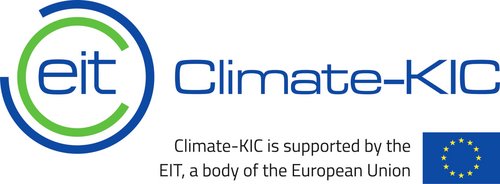What should policy-making for a just and sustainable Europe look like in 2030?
Wuppertal Institute fellows facilitated workshop and co-hosted EIT Climate-KIC event "Innovating for a Just Transition" in Brussels

Wuppertal Institute fellows facilitated workshop and co-hosted EIT Climate-KIC event "Innovating for a Just Transition" in Brussels

Coal, heavy industry and manufacturing sectors have deeply and continuously transformed the economies, cultures and identities of European industry regions since the industrialisation. Today's necessity to decarbonise the European industry entails the need for yet another transformation of these regions: They are under pressure to rapidly change their economic structure in a proactive manner considering climate, social, and economic justice simultaneously. It is no secret that this will be a major challenge for most of these regions, their respective nation states as well as the EU. For this reason, EIT Climate-KIC, the Wuppertal Institute and other partners hosted an inspirational and interactive event in Brussels on Monday, 18 November 2019 and invited a variety of stakeholders from the EU, Europe's carbon-intensive industry regions as well as scholars and NGOs to come together and envision a Just Europe in 2030.
Which policies and regulations will or should be in place in 2030? Which might have been removed? How are policies being designed, tested, and implemented in 2030? Who is involved in the policy-making process and what is the role of politicians? Using these and other trigger questions, Timon Wehnert, Head of the Institute's Berlin Office, and Michaela Roelfes, Research Fellow in the Urban Transitions Research Unit in the Energy, Transport and Climate Policy Division at the Wuppertal Institute, facilitated the workshop on "Policy and Governance Innovation for a Just Europe" together with Kate Robinson from EIT Climate-KIC. Out came a vision for citizen-led policy-making on Europe's multiple governance levels with climate policy being on track and ambitious sustainability policies in the making. "It was fascinating to see that our participants did not focus too much the exact design of policies and regulations, but critically focussed on the way policies are being made. This is valuable information for politicians but also for us as researchers", recapitulate Timon Wehnert.
The Wuppertal Institute is leading the EIT Climate-KIC Flagship Re-Industrialise, which focuses on understanding and supporting regions with an economy build around fossil fuels and carbon-intensive industries. Since the beginning of 2018, the flagship's consortium has gained valuable experience and knowledge by interacting with regional stakeholders and conducting (transdisciplinary) research on these regions. The Re-Industrialise website provides (regional) policy-makers and other interested parties with this knowledge via working papers, case studies and other report. Most importantly, the Flagship consortium has just now released an interactive map that visualises similarities and differences of Europe's coal regions.

